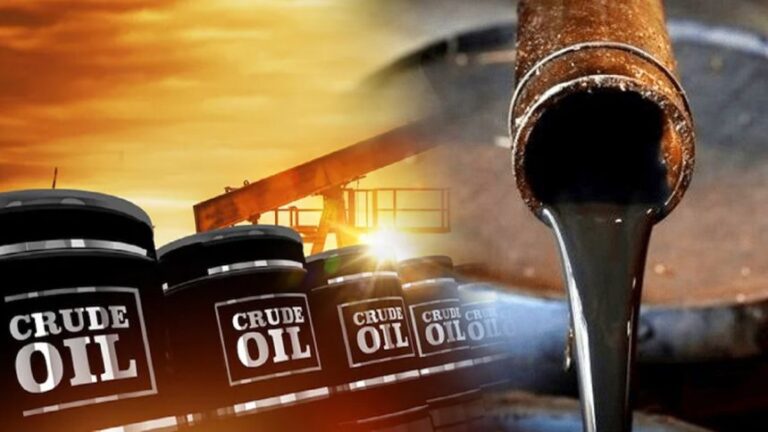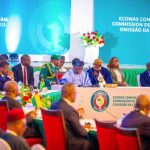By Seun Ibiyemi
The Federal Government has revealed that it will commence selling crude oil to the Dangote Refinery in naira starting from October 1, 2024.
This decision was made known by the Minister of Finance, Wale Edun during a meeting with the Implementation Committee in Abuja on Monday.
The announcement was made via a post on the finance ministry’s official X, formerly Twitter, account, which indicated that the meeting focused on reviewing the progress of key initiatives, including the transition to naira-based crude oil sales.
The government has also outlined the roles of several key stakeholders, such as the Nigerian Midstream and Downstream Petroleum Regulatory Authority, the Central Bank of Nigeria, the Nigerian Upstream Petroleum Regulatory Commission, and the African Export-Import Bank, to ensure a smooth transition and effective implementation of this policy.
“The Minister of Finance and Coordinating Minister of the Economy, Wale Edun, chaired the Implementation Committee meeting today, where progress on transitioning to naira payments for crude oil sales was reviewed.
“The naira-based sales to the Dangote Refinery are set to begin on October 1, 2024,” the finance ministry stated.
In addition , the executive chairman of the Federal Inland Revenue Service and chairman of the Technical Sub-Committee, Zacch Adedeji reported that the first delivery of Premium Motor Spirit (PMS) from the Dangote Refinery is expected to occur next month, following existing agreements.
This move follows a directive issued by the Federal Government in July, instructing the Nigerian National Petroleum Company (NNPC) to exclusively sell crude oil to the Dangote Refinery in naira.
The initiative aims to strengthen the local currency and stimulate domestic economic activities.
…Arewa laments controversies surrounding Dangote Refinery
Meanwhile, The Arewa Consultative Forum (ACF) has expressed its concerns regarding the ongoing national and international controversies surrounding the Dangote Petroleum Refinery and Petrochemicals Industrial Free Zone Enterprise (DPRPI).
In a statement issued on Monday by ACF’s National Publicity Secretary, Prof. Tanko Muhammad-Baba, the forum underscored the significant contributions of Dangote, a prominent Nigerian brand recognised globally, to the economy through its products, services, and job creation.
The ACF highlighted that the DPRPI, situated in Ibeju-Lekki, Lagos State, stands as a world-class, highly automated facility producing a range of petroleum products and chemical fertilisers for both domestic and international markets.
Muhammad-Baba noted that, given the refinery’s scale and impact, it is not surprising that it has attracted envy, controversy, and attempts at sabotage from competing interests.
According to the statement, in response to ongoing criticisms, an ACF delegation visited the DPRPI complex on July 30, 2024, to assess the facility firsthand; and was impressed by the advanced quality testing and control laboratories at the refinery, which are equipped with state-of-the-art facilities meeting and surpassing global industry standards, including those set by US and European regulators.
Following the visit, the ACF asserted that the DPRPI should be a source of national pride rather than negative press and misinformation. The forum commended Aliko Dangote for his visionary efforts to industrialise Nigeria and condemned attempts by certain public and business entities, including the Nigerian National Petroleum Company Ltd (NNPCL), to undermine the DPRPI through misinformation.
The ACF also voiced concerns about international efforts to discredit the refinery, viewing these actions as an attempt by global oil interests to challenge a successful Nigerian enterprise led by an African. The forum expressed its support for the National Assembly’s ongoing investigations into the claims and counterclaims surrounding the DPRPI, emphasising the need for a fair and transparent process to resolve the controversy and secure the refinery’s economic benefits for Nigeria.
The ACF welcomed President Bola Tinubu’s directive for the NNPCL to supply crude oil to the DPRPI and other refining entities, describing it as a commendable decision reflecting foresight and good judgement. The forum also called on other entrepreneurs and investors to emulate the DPRPI initiative and urged public regulatory agencies to support indigenous entrepreneurs investing in Nigeria’s industrial development.
Given the international dimensions of the controversy, the ACF called on the Nigerian government and other African nations to employ diplomatic influence and policy resources to resist efforts to hinder their industrialization and development efforts.
…As Marketers blame NNPC over fuel scarcity
Also, oil marketers in the country under the aegis of the Petroleum Products Retail Outlets Owners Association, (PETROAN) have attributed the latest scarcity of petrol to the non-supply of the product by the Nigerian National Petroleum Company Limited (NNPCL).
The statement followed the return of queues in fuel stations across the country with some marketers selling a litre of petrol for as high as N1,000 at the weekend.
Some filling stations were however not selling the product as black market marketers were having a field day.
The development has led to an increase in the cost of transportation.
The President of (PETROAN), Billy Gillis-Harry, who featured in Channels Television’s Morning Brief on Monday, said the marketers are currently supply-constrained and could only distribute what they have.
He said: “I think until we get our supply challenges sorted out efficiently and abundantly, we will not be able to get out of this circle.
“I believe you must have heard the NNPC’s communications director who explained that the issues at stake are still logistics-related.
“So until they get that resolved, we may just be managing the little they bring, and give to us to distribute among our members.
“NNPC Ltd is doing its best to bring in products bit by bit, and we can only supply what we have.”
When asked to give further explanation on what the logistics challenges were all about, Gillis-Harry added: “The logistics issue is about ship-to-ship transfer. Until the ship gets products, it cannot deliver to any of the depots. And until depots have products, we the retailers cannot also have access to products.”
He, however, assured that marketers were in talks with the NNPCL over the supply challenges.
“We have been speaking with NNPC Ltd. We encourage them to do more, and I can assure you that they are trying their best,” the PETROAN chief stated.








